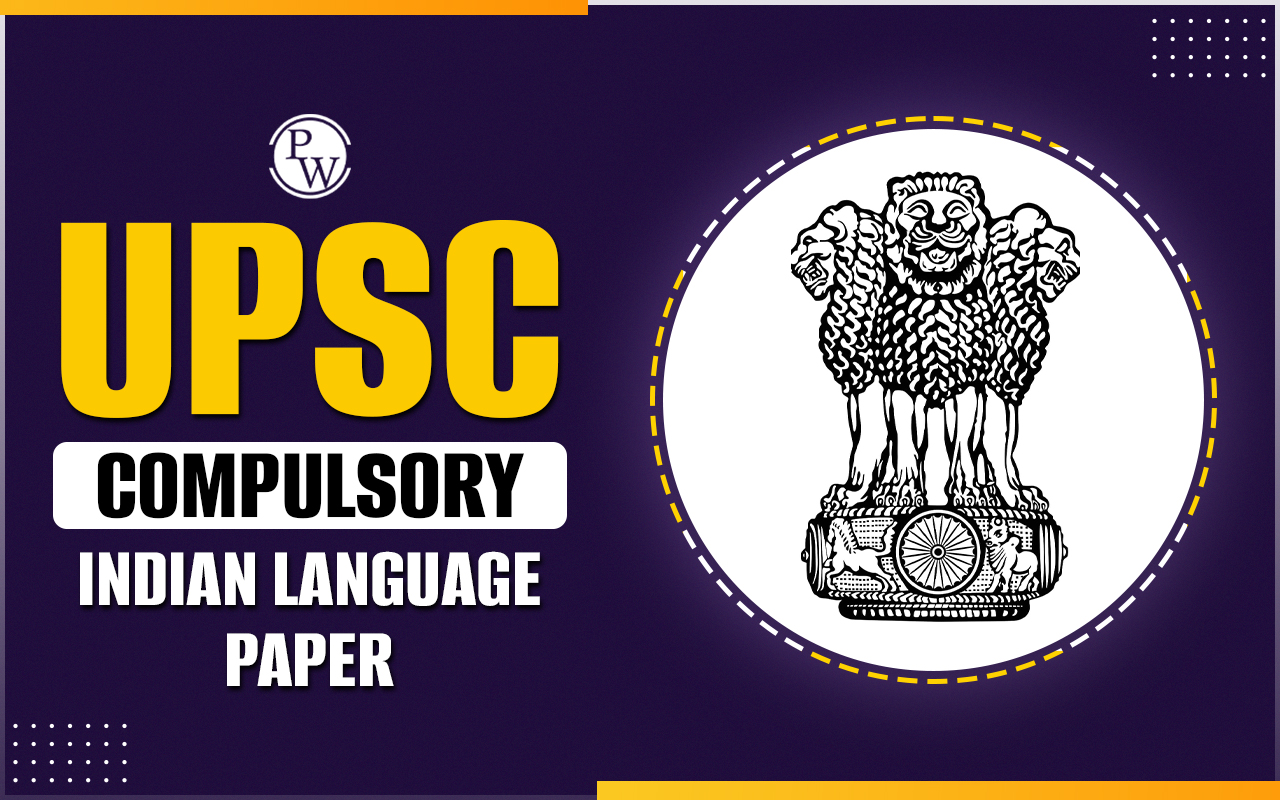The Competition Commission of India (CCI) is the statutory body responsible for enforcing competition law in India. Established under Section 7 of the Competition Act, 2002, the CCI ensures markets function fairly for all participants, especially consumers. Fully functional since 2009, it operates under the Ministry of Corporate Affairs (MCA).

Competition Commission of India is the country’s chief authority responsible for promoting fair competition in the marketplace. It works to prevent practices that harm consumers or create unfair advantages for certain businesses. By keeping a close check on monopolies, controlling anti-competitive agreements, and ensuring transparency in the market, the CCI helps create a healthy business environment that supports innovation, protects consumers, and encourages economic growth.
Competition Commission of India Overview
The fundamental purpose of the Competition Commission of India is to create and sustain a competitive environment, which, in turn, fosters innovation, promotes efficiency, and ensures economic growth. This legal framework replaced the archaic Monopolies and Restrictive Trade Practices Act, 1969 (MRTP Act), marking a shift from curbing monopolies to actively promoting competition.
Historical Background and the Competition Act, 2002
The journey towards modern competition law began with the economic liberalization of 1991, which necessitated a change in India's regulatory mechanism. The MRTP Act, 1969, was deemed insufficient for the needs of a liberalized economy,as its philosophy was to curb monopolies rather than promote competition.
Raghavan Committee Recommendations
In 1999, the government appointed the S.V.S. Raghavan Committee to review the existing law and suggest a new framework. Based on the committee's recommendations, the Competition Act, 2002, was enacted. This Act aligns India's competition policy with global standards, aiming to:
-
Prevent practices that have an Appreciable Adverse Effect on Competition (AAEC) in India.
-
Promote and sustain competition in markets.
-
Protect the interests of consumers.
-
Ensure freedom of trade is carried out by other market participants.
Objectives of the Competition Commission of India
The primary objectives of the Competition Commission of India are directly derived from the preamble of the Competition Act, 2002, and focus on maximizing consumer and market welfare.
-
Market Regulation for Consumer Welfare: To ensure that markets work for the benefit and welfare of consumers by providing them with a wider range of goods and services at competitive prices.
-
Preventing Anti-Competitive Practices: To actively deter and eliminate agreements and conduct that harm market competition, such as cartels, price-fixing, and market division.
-
Fostering Economic Growth: To promote fair and healthy competition, which is crucial for faster and inclusive economic development.
-
Competition Advocacy and Awareness: To undertake competition advocacy, create public awareness, and impart training on competition issues for policymakers, businesses, and stakeholders.
Composition and Structure of the Competition Commission of India
The structure of the Competition Commission of India is defined under the Competition Act, 2002.
|
Composition and Structure of the Competition Commission of India |
|
|
Component |
Details |
|
Composition |
It consists of a Chairperson and not less than two and not more than six other Members. |
|
Appointment |
The Central Government appoints the Chairperson and Members. |
|
Selection |
Appointments are made based on the recommendations of a Selection Committee. |
|
Eligibility |
The Chairperson and Members must be persons of ability, integrity, and standing, with special knowledge and professional experience of not less than fifteen years in fields like international trade, economics, law, commerce, finance, or public affairs. |
|
Tenure |
They hold office for a term of five years and are eligible for re-appointment, provided they do not hold office after attaining the age of sixty-five years. |
|
Headquarters |
The CCI's Head Office is in New Delhi. |
Functions and Duties of the Competition Commission of India
The duties of the Competition Commission of India revolve around three pillars of competition law: Anti-Competitive Agreements, Abuse of Dominant Position, and Regulation of Combinations.
Prohibition of Anti-Competitive Agreements
The CCI prohibits agreements between enterprises or persons that cause or are likely to cause an AAEC within the market in India. These are typically agreements that limit or control production, supply, prices, or share markets, such as:
-
Horizontal Agreements (Cartels): Agreements between competitors (firms at the same level of the supply chain), like bid-rigging or price-fixing, are considered void and attract severe penalties.
-
Vertical Agreements: Agreements between firms at different levels of the supply chain (e.g., a manufacturer and a distributor) are scrutinized to see if they create a significant barrier to entry or foreclose the market.
Curbing Abuse of Dominant Position
The CCI prohibits any enterprise or group from abusing its dominant position in the relevant market. Dominance, in itself, is not illegal, but its abuse is. An enterprise holds a dominant position if it can operate independently of competitive forces or affect its competitors or consumers in its favour. Abuse includes:
-
Imposing unfair or discriminatory conditions on the purchase or sale of goods or services.
-
Limiting or restricting production or technical development.
-
Indulging in predatory pricing (selling products below cost to eliminate competition).
Regulation of Combinations (Mergers and Acquisitions)
The CCI is tasked with reviewing and regulating 'Combinations,' which include acquisitions, mergers, or amalgamations that cross specified thresholds in terms of assets or turnover. The aim is to ensure that these combinations do not result in a significant concentration of power that could cause an AAEC in the market.
Powers of the Competition Commission of India
To effectively carry out its functions, the Competition Commission of India is vested with extensive powers.
Investigative and Enforcement Powers
-
Inquiry: The CCI can initiate an inquiry into anti-competitive practices either upon receiving a complaint, a reference from a government authority, or suo motu (on its own motion).
-
Director General (DG): The CCI directs the Director General to conduct a detailed investigation into any reported contravention. The DG acts as the investigation arm of the CCI.
-
Penalties: The CCI has the power to impose stiff monetary penalties on enterprises found to be engaging in anti-competitive behavior. Penalties for violating Sections 3 (Anti-competitive agreements) and 4 (Abuse of dominant position) can be up to 10% of the average turnover of the defaulting enterprise for the preceding three financial years.
-
Cease and Desist Orders: The Commission can issue orders directing the offending enterprises to desist from the anti-competitive practices.
-
Division of Enterprise: In cases of severe abuse of dominant position, the CCI has the power to order the division of an enterprise.
Advisory and Advocacy Powers
-
Advisory Role: The CCI provides opinions on competition-related issues when referred by a statutory authority established under any other law.
-
Competition Advocacy: The Commission undertakes measures to promote awareness and impart training on competition issues.
Extra-Territorial Jurisdiction
-
The CCI can inquire into any act or agreement that occurs outside India but has, or is likely to have, an AAEC on competition within India.
Competition (Amendment) Act, 2023
The Competition Act, 2002, was significantly amended by the Competition (Amendment) Act, 2023, which introduced several critical changes to strengthen the framework of the Competition Commission of India. Key highlights include:
-
Deal Value Threshold (DVT): Introduced DVT as a new criterion for notifying combinations. Any transaction where the value of a deal exceeds ₹2,000 crore (approx. US$240 million), and the target enterprise has substantial business operations in India, now requires CCI approval, even if the traditional asset/turnover thresholds are not met. The exact final threshold and conditions are subject to final notification and guidelines.
-
Penalty on Global Turnover: The amendment allows the CCI to impose a penalty of up to 10% on the global turnover of an enterprise, instead of just the turnover generated from the relevant product or service in India.
-
Leniency Plus Regime: Introduced a "Leniency Plus" provision, allowing an applicant who is part of an existing cartel to get a reduction in penalty for disclosing the existence of a second, undisclosed cartel.
-
Commitment and Settlement: New mechanisms for Settlement and Commitment have been introduced, allowing parties under investigation to offer remedies to the CCI before the final order is passed.
-
Reduced Timeline for Combinations: The timeline for the CCI to issue a prima facie opinion on combinations has been reduced from 210 days to 150 days.
Competition Commission of India FAQs
What is the Competition Commission of India (CCI)?
The Competition Commission of India (CCI) is a statutory body established under the Competition Act, 2002, to enforce competition law in India. Its duty is to promote and sustain competition, protect consumer interests, and ensure freedom of trade in Indian markets.
Which Act established the Competition Commission of India?
The CCI was established under the Competition Act, 2002, which replaced the Monopolies and Restrictive Trade Practices Act (MRTP Act), 1969.
What is the primary function of the Competition Commission of India (CCI)?
The primary function of the CCI is to eliminate practices that have an Appreciable Adverse Effect on Competition (AAEC) in India. This includes prohibiting anti-competitive agreements, preventing the abuse of dominant positions, and regulating combinations (mergers and acquisitions).
Who appoints the Chairperson and Members of the Competition Commission of India?
The Central Government of India appoints the Chairperson and other Members of the Competition Commission of India based on the recommendations of a Selection Committee.
What is the term of office for the CCI Chairperson and Members?
The Chairperson and Members of the CCI hold office for a term of five years and are eligible for re-appointment, provided they have not attained the age of sixty-five years.
Talk to a counsellorHave doubts? Our support team will be happy to assist you!

Check out these Related Articles
Free Learning Resources
PW Books
Notes (Class 10-12)
PW Study Materials
Notes (Class 6-9)
Ncert Solutions
Govt Exams
Class 6th to 12th Online Courses
Govt Job Exams Courses
UPSC Coaching
Defence Exam Coaching
Gate Exam Coaching
Other Exams
Know about Physics Wallah
Physics Wallah is an Indian edtech platform that provides accessible & comprehensive learning experiences to students from Class 6th to postgraduate level. We also provide extensive NCERT solutions, sample paper, NEET, JEE Mains, BITSAT previous year papers & more such resources to students. Physics Wallah also caters to over 3.5 million registered students and over 78 lakh+ Youtube subscribers with 4.8 rating on its app.
We Stand Out because
We provide students with intensive courses with India’s qualified & experienced faculties & mentors. PW strives to make the learning experience comprehensive and accessible for students of all sections of society. We believe in empowering every single student who couldn't dream of a good career in engineering and medical field earlier.
Our Key Focus Areas
Physics Wallah's main focus is to make the learning experience as economical as possible for all students. With our affordable courses like Lakshya, Udaan and Arjuna and many others, we have been able to provide a platform for lakhs of aspirants. From providing Chemistry, Maths, Physics formula to giving e-books of eminent authors like RD Sharma, RS Aggarwal and Lakhmir Singh, PW focuses on every single student's need for preparation.
What Makes Us Different
Physics Wallah strives to develop a comprehensive pedagogical structure for students, where they get a state-of-the-art learning experience with study material and resources. Apart from catering students preparing for JEE Mains and NEET, PW also provides study material for each state board like Uttar Pradesh, Bihar, and others
Copyright © 2026 Physicswallah Limited All rights reserved.









